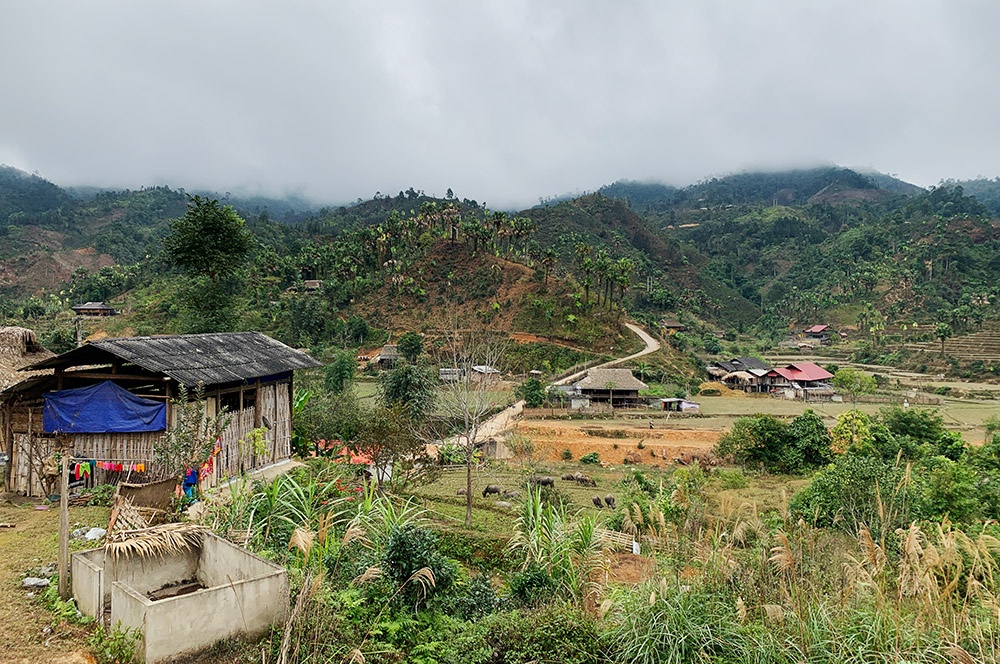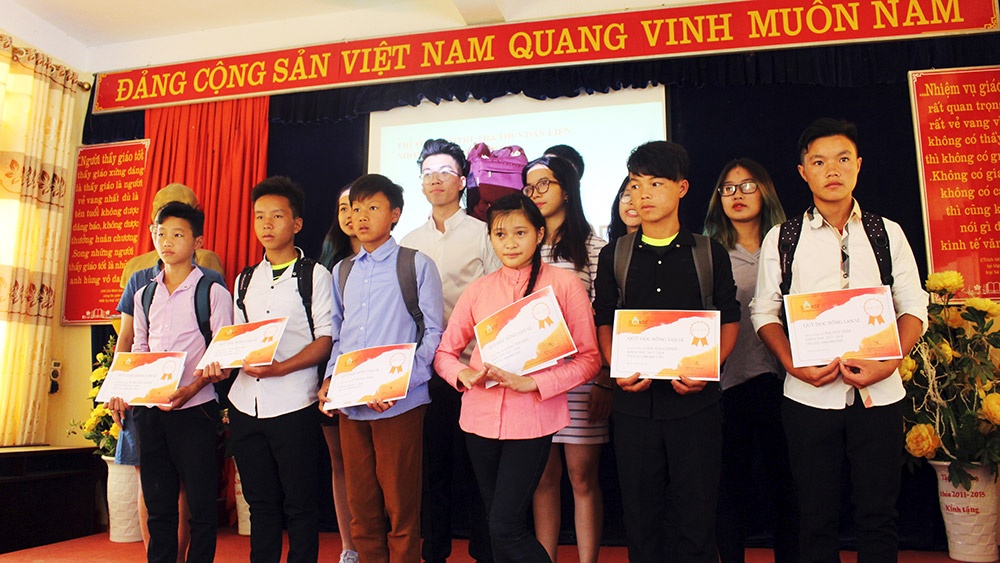SANSE prepares youth for sustainable development
Can you give an overview of SANSE, its goals, and past results?
 |
| Nguyen Trang Linh, head of development at SANSE, founded in 2016 by students at the United Nations International School in Hanoi |
SANSE’s mission is to promote the sustainable growth of impoverished, geographically challenged, and agriculturally dependent regions in Vietnam; foster an understanding and connection between urban and rural communities; and promote the local educational systems and other learning opportunities as a tool to assist the sustainable growth of rural regions in Vietnam.
We’re currently working to achieve these goals in the ethnic Tay village of Ban Lien in Lao Cai by providing infrastructure and education.
Over the last six years of operation, we’ve invested around $8,700 into building new roofs, a well, and a kindergarten in Ban Lien. We’ve also helped to provide equipment for a medical station in the area.
We’re now planning to build a library for the primary and middle schools. This infrastructure should improve the quality of life for residents.
In education, we’ve provided numerous full-ride high school scholarships to residents of Ban Lien. However, I believe our next steps will be the most significant.
In the 2022-23 school year, we will be introducing a new high school curriculum for Ban Lien schools. It is a career-oriented curriculum that will clarify options for high school students going into the workforce or higher education.
We will look to orient students towards careers that are suitable for them, and give them concrete milestones that they need to achieve to get closer to their goals.
We noticed that, due to structural issues, education in Ban Lien doesn’t prepare students very well for college entrance exams. We wanted to ensure that students in Ban Lien have a legitimate opportunity at a good education through the academic resources that SANSE strives to provide.
We’ve focused so much on education because we truly believe that education is the way to break the cycle of poverty. Ideally, students graduate, find jobs, and come back to Ban Lien to contribute to the community, perhaps as teachers or administrators. It all goes back to the idea of sustainable development: we want to make sure that our investment has a long-term positive impact.
I have to mention also that in all our activities, we are aided by a local coordinator who lives in and understands the community. He helps plan trips for SANSE members to Ban Lien, and he is the point of connection between us and the village.
In the future, we want to help communities beyond Ban Lien. Presently, we are formulating plans for expanding our operation to two more villages in Lao Cai.
 |
Where does SANSE get its funding from?
Before the pandemic, we did fundraisers, like bake sales and social nights. However, our main source of revenue is San Se tea.
We work with a company producing tea in Ban Lien (the owner of the tea production facility is actually our local coordinator) to promote and sell their tea. In exchange, we receive a share of the profit and then reinvest it into Ban Lien. Over the last six years, we’ve raised around $17,000 through the sale of San Se tea.
Otherwise, we have partnerships with companies that help us fund projects in Ban Lien. For example, our partnership with a clothing company helped us bring masks to Ban Lien during the pandemic.
 |
How has COVID affected SANSE’s plans?
It weakened our connection with Ban Lien. Before the pandemic, we had 3–5 annual trips to Ban Lien to establish a bond with the community.
We also had plans to ensure that high school graduates who received our scholarship had jobs when they graduated. Due to COVID, we haven’t been able to keep up these trips, and we’ve lost frequent contact with some of these students.
Seeing as SANSE is an organisation run by high school students, how do you deal with a rotating group of members?
We’re very aware of the fact that members will move on after they graduate, so we make sure that our projects are in the spirit of what our founders set out to do.
We have a board of directors, comprised of co-founders and former heads, who oversee the work we do on a macro level. All of our big decisions, like the construction of the library and the expansion into parts of Lao Cai, go through them.
We believe that our work can only be done effectively when the members are truly passionate about aiding communities. So, we recruit through applications. We look mostly at the care the student shows for our cause, regardless of age or school – personally, I started working for SANSE at the end of sixth grade. After members are accepted, we have alumni return to help students transition into their new roles.
What the stars mean:
★ Poor ★ ★ Promising ★★★ Good ★★★★ Very good ★★★★★ Exceptional
Related Contents
Latest News
More News
- Vietnam Television launches third 'Song Sau Lu' project for 2025 (December 15, 2025 | 08:00)
- Closing workshop highlights five-year impact of Fair for All project (December 12, 2025 | 16:22)
- Stakeholders mobilised before new child safety rules take effect (December 10, 2025 | 09:00)
- Vietnam receives emergency international relief as regional flooding intensifies (December 04, 2025 | 15:11)
- AmCham scholarships awarded to students (December 02, 2025 | 16:46)
- Vietjet flights carry love to devastated central region (November 28, 2025 | 11:35)
- SCG Sharing the Dream supports Vietnam’s youth and sustainable development goals (November 28, 2025 | 10:55)
- Siemens Caring Hands donates $34,700 for disaster relief in Vietnam (November 26, 2025 | 20:25)
- Ireland extends support for the Resilience First initiative (November 26, 2025 | 15:24)
- South Korea funds IOM relief for Vietnam’s typhoon-affected communities (November 24, 2025 | 15:33)

 Tag:
Tag:




















 Mobile Version
Mobile Version